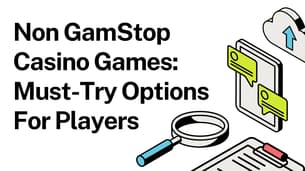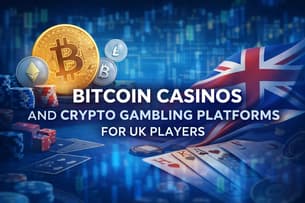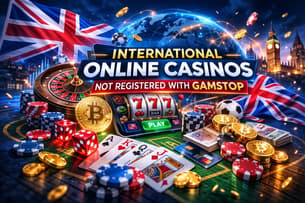
The Nordic countries lead the way: a comparative analysis of Scandinavian gambling regulations

The Nordic countries are known for their progressive societies, strong welfare state and high quality of life. A less well-known but equally important part of the Nordic social model is their moral approach to challenging issues such as gambling and its regulation.
This article examines and compares gambling legislation and practice across the Nordic countries. By analysing the different regulatory models in these countries, we can understand how they seek to balance the social, economic and health impacts of gambling. In particular, we focus on how the Nordic countries have taken a leading role in promoting responsible gambling and preventing gambling problems.
The Finnish monopoly model
In Finland, gambling regulation is based on a monopoly model where Veikkaus Oy has the exclusive right to offer gambling. This state-owned company is responsible for all gambling, including lotteries, betting and casino games.
The purpose of the monopoly is to limit the supply of gambling and minimise the harm it causes. In Finland, gambling revenues are widely used for socially beneficial purposes, such as supporting culture, sport, science and youth work. This system has attracted international interest because it combines strict regulation with strong social responsibility.
However, the monopoly model has also been criticised, in particular for its effectiveness in preventing gambling problems and for market diversification, which has led to a debate on possible future regulatory changes. Indeed, there would be several entrants to the Finnish market that could offer consumers a wider range of services.
At present, however, many Finnish customers choose to play in Finnish-oriented casinos operated from abroad under foreign licences. Visit https://www.askgamblers.com/online-casinos/countries/fi to find out more about the best such casinos.
Sweden's more liberal approach
In Sweden, there has been a significant change in gambling regulation in recent years. In 2019, the country moved from a monopoly system to a licensing system, opening up the gambling market to international operators. This means that both domestic and foreign companies can apply for a licence to offer gambling in Sweden. The aim of the reform was to create a better controlled and fairer market where all operators can operate as long as they follow the same rules and standards.
Sweden's new gambling law puts the emphasis on responsible gambling and the prevention of gambling problems. Licensees will have to comply with strict rules, for example on advertising, and provide players with tools to manage their gambling, such as deposit limits and self-imposed bans. The supervisory authority Spelinspektionen closely monitors the activities of gambling companies and can impose fines or withdraw licences for breaches of the rules if necessary.
Sweden's move to a more liberal approach has received mixed reviews. On the one hand, it has increased consumer choice and reduced the attractiveness of the illegal gambling market. On the other hand, some are concerned that opening up the market could lead to an increase in gambling problems. Those who decide on gambling in Finland can learn from the problems in Sweden in the future.
Norway's strict regulation
In Norway, gambling regulation is very strict and based on the principle of social responsibility. The Norwegian gambling market is dominated by two state-owned companies: Norsk Tipping and Norsk Rikstoto. These companies have the exclusive right to offer gambling services. This monopoly model is designed, as in Finland, to limit access to gambling and to minimise its harmful effects on society.
The Norwegian regulatory model focuses on the prevention and treatment of gambling problems. Norsk Tipping and Norsk Rikstoto are required to implement extensive responsible gambling programmes. These programmes include, for example, identification of players, setting of gaming limits and provision of various self-control tools for players. In addition, Norway has a system whereby players can impose a general ban or limit their gambling at certain intervals.
The Norwegian gambling supervisory authority, Lotteri- og stiftelsestilsynet, works closely with national health authorities and organisations specialising in the treatment of gambling problems to ensure that gambling activities remain responsible and harm is minimised.
Norway's strict gambling regulation has been widely praised for its effectiveness in preventing problem gambling. However, critics point out that strict regulation can lead to players switching to services based abroad.
Denmark's hybrid model
In Denmark, the gambling market operates under a hybrid model, combining elements of both a state monopoly and a licensing system. Since 2012, Denmark has allowed a licensing system whereby domestic and foreign operators can apply for a licence to offer gambling services such as betting and online casino games. At the same time, Danske Spil, a state-owned company, maintains a monopoly on lotteries and certain other games such as bingo and keno.
Danish gambling regulation is designed to strike a balance between market freedom and consumer protection. All licensees are required to comply with strict responsible gambling requirements, which include player identification, the setting of gaming limits and the possibility of self-imposed bans. In addition, the Danish Gambling Authority Spillemyndigheden closely monitors the market and ensures that all operators comply with the rules.
Denmark has also set up a comprehensive national register, ROFUS, where players can register to be banned from gambling, either temporarily or permanently. This system has proven to be an effective tool for managing gambling problems. In addition, Denmark uses gambling revenues for a wide range of socially beneficial purposes, such as supporting sport, culture and social services.
The Danish hybrid model has been praised for its flexibility and efficiency. It has succeeded in creating a safe and fair gambling market while keeping gambling problems under control. On the other hand, the opening of the market has increased competition, which has improved the quality of services and given consumers more choice.
Summary and conclusions
The Nordic countries have taken different approaches to gambling regulation, but all have in common an emphasis on responsibility. Finland and Norway have opted for a monopoly system that seeks to minimise the negative effects of gambling through centralised control. Sweden and Denmark, on the other hand, have moved towards market liberalisation in the form of licensing schemes, but they also place responsible gambling and consumer protection at the heart of their regulation.
There is much to learn from their experience. Monopoly systems can be effective in limiting the negative effects of gambling, but they face challenges as customers can easily migrate to foreign unregulated markets via the internet. On the other hand, more liberal models, such as those in Sweden and Denmark, can offer players more choice and improve market competitiveness, but they require strict controls and effective responsible gambling mechanisms.
What all the Nordic countries have in common is their commitment to promoting responsible gambling and preventing gambling problems. These models can be used in a global context as other countries consider reforming their gambling legislation. It is important to strike a balance between liberalisation and social responsibility to ensure that gambling remains a safe and controlled activity.
The Nordic experience shows that successful gambling regulation requires constant monitoring, flexibility and the ability to adapt rules to changing circumstances. Other countries can benefit from these lessons and develop their own regulatory models to meet their specific needs and circumstances.

Elen Stelmakh is a creative individual dedicated to advancing gaming culture through articles and visual design. As a full-time EGamersWorld author and designer for a gaming website, Elen not only creates content but also infuses it with energy and creativity.
 Roblox Anime Guardians Codes February 2026Discover all working Roblox Anime Guardians codes. Redeem for free Mystic Coins, Trait Rerolls, Artifacts, and rewards.
Roblox Anime Guardians Codes February 2026Discover all working Roblox Anime Guardians codes. Redeem for free Mystic Coins, Trait Rerolls, Artifacts, and rewards. Non-UK Online Casinos: Games, Formats, and What Players Can ExpectOnline casinos operating outside the UK gambling framework attract attention due to differences in licensing models, game portfolios, and promotional...
Non-UK Online Casinos: Games, Formats, and What Players Can ExpectOnline casinos operating outside the UK gambling framework attract attention due to differences in licensing models, game portfolios, and promotional... Bitcoin Casinos and Crypto Gambling Platforms for UK PlayersCrypto-based gambling platforms have become a noticeable segment of the global online casino market.
Bitcoin Casinos and Crypto Gambling Platforms for UK PlayersCrypto-based gambling platforms have become a noticeable segment of the global online casino market. Best International Online Casinos for UK PlayersThe online casino industry is an ever-rising sector acknowledged for its technology, extensive library of games, and the amount of revenue it generate...
Best International Online Casinos for UK PlayersThe online casino industry is an ever-rising sector acknowledged for its technology, extensive library of games, and the amount of revenue it generate...





